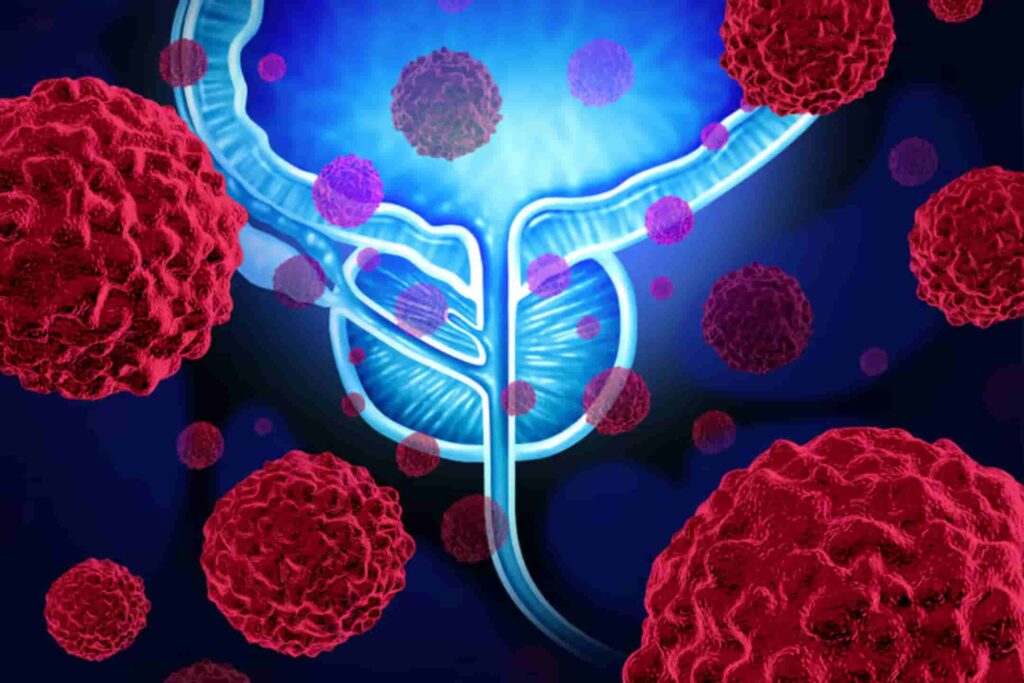Exploring the Potential of Medical Marijuana in Prostate Cancer Management
Prostate cancer is a prevalent form of cancer among men, impacting millions of lives worldwide. While conventional treatments such as surgery, radiation, and chemotherapy have been the standard approach, there is growing interest in alternative therapies. One such alternative that has gained attention in recent years is medical marijuana. This essay aims to explore the potential benefits of medical marijuana in the context of prostate cancer, examining both its therapeutic properties and the current state of research in this field.
Understanding Prostate Cancer:
Prostate cancer begins when cells in the prostate gland, a small walnut-shaped organ in men, start to grow uncontrollably. The prostate is responsible for producing seminal fluid that nourishes and transports sperm. Symptoms of prostate cancer include difficulty urinating, blood in the urine or semen, and discomfort in the pelvic area. Risk factors for prostate cancer include age, family history, and race.
Traditional Treatment Approaches:
Traditionally, prostate cancer has been treated through surgery, radiation therapy, and chemotherapy. Surgery involves removing the prostate gland, while radiation therapy uses high doses of radiation to kill cancer cells. Chemotherapy employs drugs to destroy or slow the growth of cancer cells. While these treatments can be effective, they often come with side effects such as nausea, fatigue, and a compromised immune system.
Medical Marijuana and Its Components:
Medical marijuana refers to the use of the cannabis plant or its chemical compounds for medicinal purposes. The two primary components of marijuana with therapeutic potential are tetrahydrocannabinol (THC) and cannabidiol (CBD). THC is responsible for the psychoactive effects commonly associated with marijuana, while CBD is non-psychoactive and has shown promise in various medical applications.
The Endocannabinoid System:
The human body has an endocannabinoid system (ECS) that plays a crucial role in regulating various physiological processes, including appetite, sleep, mood, and immune function. The ECS consists of receptors, endocannabinoids (naturally occurring compounds in the body), and enzymes that help break down these compounds. The cannabinoids in marijuana interact with the ECS, influencing its regulatory functions.
Potential Benefits of Medical Marijuana in Prostate Cancer:
- Pain Management: One of the most common symptoms of prostate cancer is chronic pain. Medical marijuana, particularly CBD, has demonstrated analgesic properties that can help alleviate pain. It does so by interacting with the endocannabinoid receptors and modulating the perception of pain.
- Anti-Inflammatory Effects: Inflammation is a key component of cancer progression. Both THC and CBD have anti-inflammatory properties, which may help reduce inflammation in the prostate and slow the growth of cancer cells.
- Appetite Stimulation: Cancer treatments often lead to loss of appetite and weight loss. THC, the psychoactive component of marijuana, has been shown to stimulate appetite, potentially aiding patients undergoing cancer therapies.
- Nausea and Vomiting Control: Chemotherapy-induced nausea and vomiting are common side effects that significantly impact the quality of life for cancer patients. Medical marijuana, particularly THC, has antiemetic properties that can help manage these symptoms.
- Anxiety and Depression: A cancer diagnosis can lead to increased anxiety and depression. CBD, known for its anxiolytic and antidepressant effects, may provide emotional support to patients navigating the challenges of prostate cancer treatment.
- Quality of life: In addition to improved pain management, many patients report improvement in their ability to cope with their disease. Quality of life is something we don’t think much about until we no longer have it. It can drain us of our energy and will. The importance of addressing this cannot be overstated.
Current Research Landscape:
While there is anecdotal evidence and preclinical studies suggesting the potential benefits of medical marijuana in prostate cancer, more rigorous research is needed. Clinical trials are essential to determine the safety, efficacy, and optimal dosages of medical marijuana in cancer patients. Some studies have shown promising results, but larger, well-designed trials are required to draw definitive conclusions.
Challenges and Considerations:
Despite the potential benefits, the use of medical marijuana in prostate cancer management faces various challenges. The legal status of marijuana varies globally and within different jurisdictions, creating barriers to access for patients seeking alternative treatments. Additionally, concerns about the psychoactive effects of THC and potential long-term side effects warrant careful consideration.
Conclusion:
The exploration of medical marijuana in prostate cancer management represents a promising avenue for enhancing the quality of life for patients undergoing traditional treatments. Its potential to alleviate pain, reduce inflammation, and manage treatment-related symptoms underscores the need for further research and clinical trials. As societal attitudes towards marijuana evolve, and more evidence is gathered, medical marijuana may become a valuable addition to the arsenal of therapies available for prostate cancer patients. However, it is crucial to approach this topic with a balanced perspective, considering both the potential benefits and risks associated with the use of medical marijuana in cancer care.

Dr. Nicholas Marsh has been a respected board-certified anesthesiologist in Northern Virginia for over 35 years. Recognized as a top doctor by FindaTopDoc.com, his vision for providing top-quality medical services is driven by his passion for patient comfort and dignity.

